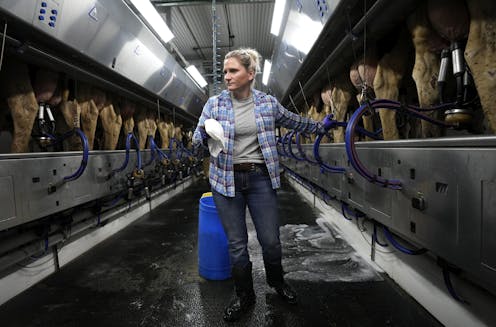America’s dairy farms are disappearing, down 95% since the 1970s − milk price rules are one reason why
- Written by Elizabeth Eckelkamp, Associate Professor of Animal Science and Dairy Extension Specialist, University of Tennessee
 Running a dairy farm isn't easy, especially when the costs of production rise faster than income.AP Photo/Charlie Neibergall
Running a dairy farm isn't easy, especially when the costs of production rise faster than income.AP Photo/Charlie NeibergallMilton Orr looked across the rolling hills in northeast Tennessee. “I remember when we had over 1,000 dairy farms in this county. Now we have less than 40,” Orr, an agriculture adviser for Greene County,...

